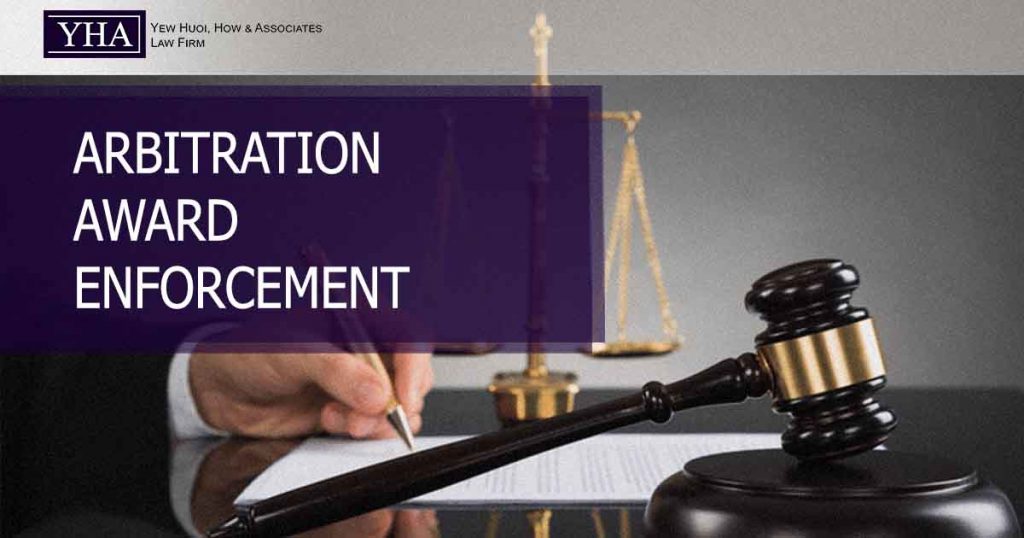In brief
- Arbitration is a kind of alternative dispute resolution in which disputants agree to have their disagreements resolved by a third party (i.e. one or more arbitrators). Parties that choose arbitration agree not to take their disagreement to court. Arbitration is sometimes considered as a more appealing option than going to court, particularly in specific sectors or when the issue is worldwide. The Arbitration Act 2005 (“Act”) governs arbitration procedures in Malaysia.
Q. Is it permissible for a Singapore-based corporation to have an arbitral award enforced in Malaysia?
A. Yes, Malaysia is a signatory to the 1958 New York Convention on the Recognition and Enforcement of Foreign Arbitral Judgements, which compels signing nations’ courts to recognise and enforce arbitration awards issued by other contracting governments.
How are arbitral awards enforced in Malaysia?
- Where the seat of arbitration is in Malaysia, or the award is from a state that is a contractual party to the New York Convention, Section 38 of the Act governs the recognition and enforcement of awards. As a result, an arbitral ruling is final and binding on the parties under the Act. To summarise, a party seeking to enforce an arbitral award must go to the High Court for the award to be recognised as binding. The award may be enforced as if it were a court decision in terms of the award once it has been recognised by the High Court
Q. However, may a court refuse to recognise or enforce an arbitral award if it is not satisfied?
A. Yes, the court has the authority to refuse to recognise or enforce an arbitral award in exceptional circumstances, such as when a party presents to the High Court under any incapacity described in S.39(1)(a) of the Arbitration Act 2005, or if the High Court determines that the arbitral award is unreasonable or falls under any incapacity described in S.39(1)(b) of the Arbitration Act 2005.
Is it possible to challenge the arbitral award decision?
- Generally you’re not able to appeal against it even if you’re unhappy with it. However, if any of the Grounds for Refusing Recognition and Enforcement are present, the Act authorises the High Court to set aside an arbitral judgement (Section 37 of the Act). A setting aside application, on the other hand, must be filed within 90 days of receiving the award. Moving on, an arbitral award can be set aside if it is against Malaysian “public policy” or if the award was influenced or influenced by fraud or corruption, or if a violation of natural justice occurred during the arbitral processes or in connection with the award. Furthermore, if the grounds for setting aside the award are that it was inspired or influenced by fraud or corruption, the 90-day time limit for requesting to set aside the award does not apply.
Q. What if I’m not happy with the arbitrator can I file a suit against him?
A. An arbitrator is not accountable for any act or omission done or failed to be done in the exercise of his powers as an arbitrator unless the conduct or omission is demonstrated to be in bad faith, according to the Act.

